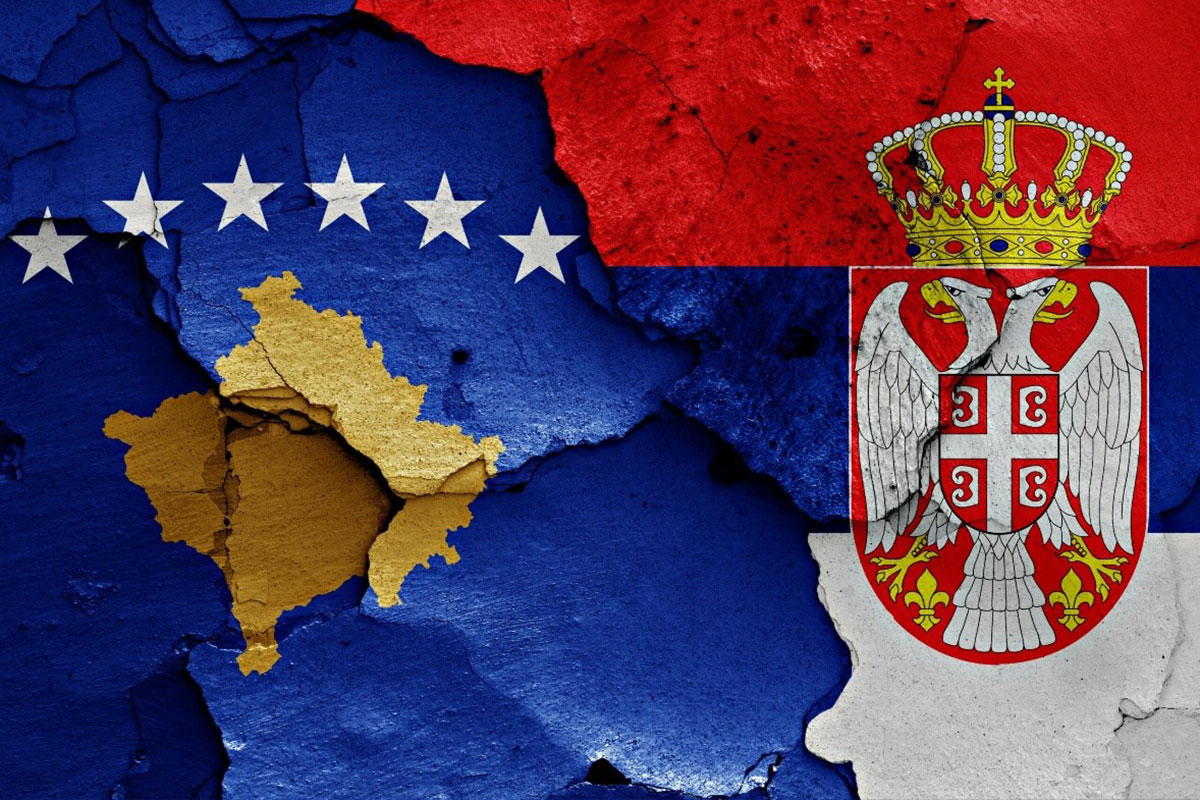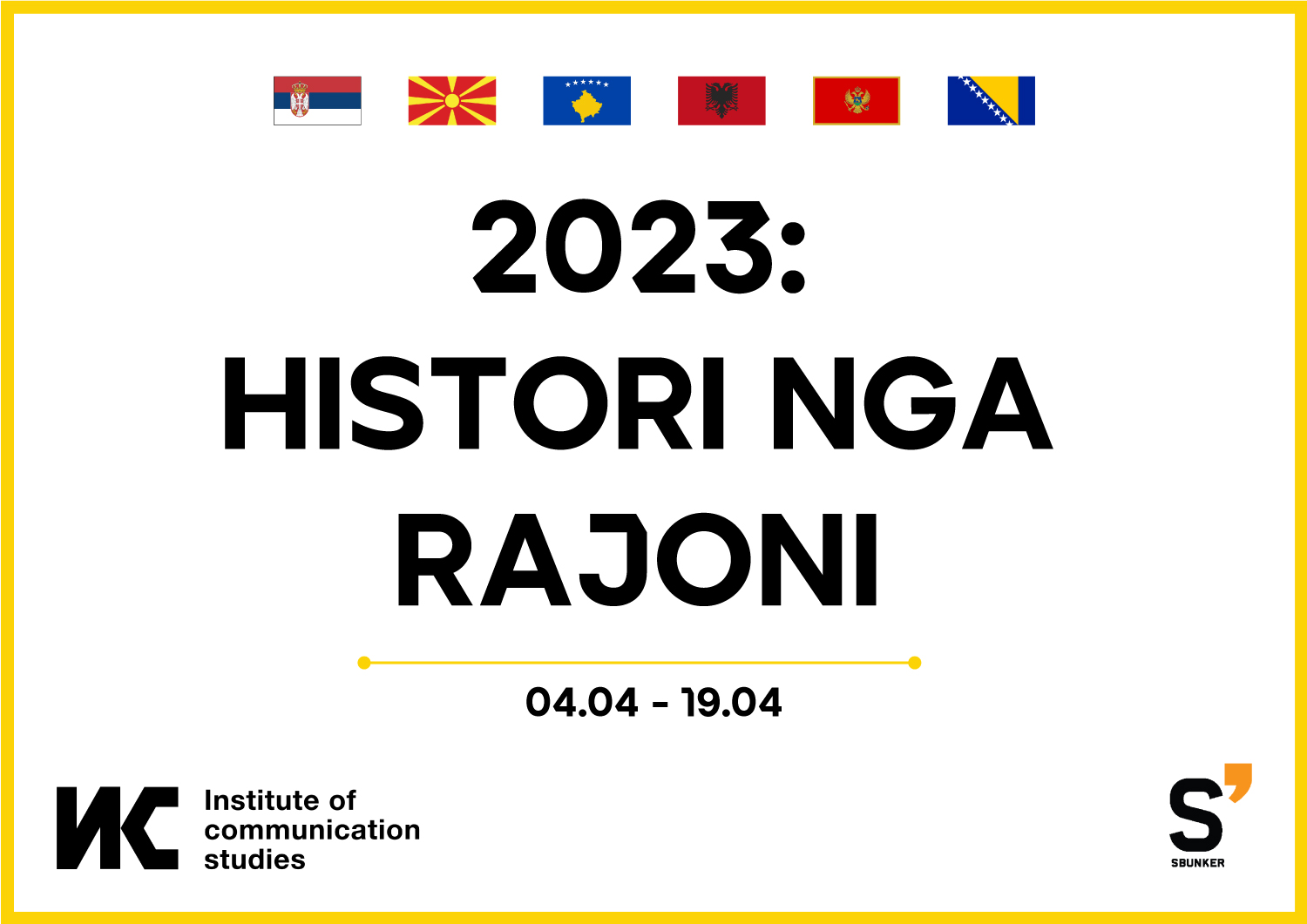Disagreements among Western Balkan countries on initiatives such as "Open Balkans" and the gaps created due to the uncertainty of the European integration processes create the ground for external actors such as Serbia, Russia, and China to push for their destabilization agendas.
Dezinformimin the EU today represents a serious threat to the normal functioning of democracy, the political system, society, and the economy. In the case of Kosovo, propaganda accompanied by disinformation coordinated by external actors is trying to be used as a trump card for geopolitical influence.
The main source of disinformation in Kosovo is mostly Serbia, with the support of Russia, mainly targeting the zones/municipalities inhabited by Serbs. Kosovo has expressed its unwavering intention to membership in the European Union, assuming the obligations of the only active agreement that currently exists - The Stabilization and Association Agreement (SAA).
But Credible reports have been continuously confirming that the perception that has existed for years that the citizens of Kosovo are the most pro-European people has started to waver. This is due to the delay in visa liberalization, the uncertainty in the integration process due to the non-recognition of Kosovo by five EU member states, and the approach to the dialogue with Serbia.
Declining support for EU integrations
Despite the "status quo" on the issues that are blocking Kosovo on its path toward the EU, the respondents covered by the Western Balkans Security Barometer (WBSB) continue to support Kosovo's EU integration strongly. A total of 92 percent of respondents support Kosovo’s membership in the EU. Only 4 percent do not support integration, while the rest have no opinion on the matter. Although Kosovars overwhelmingly support EU integration, there is skepticism that this can happen soon. When asked whether the EU is ready to accept Kosovo as a member state, 75 percent answered positively. Still, the majority (41 percent) of them believe that membership will not happen in the near future. On the other hand, 20 percent of respondents believe that the EU is not ready to accept Kosovo as a member.
Regional cooperation is among the main prerequisites for integration in the European Union. But the dilemmas in the EU member states regarding the enlargement policy with the countries of the Western Balkans have often brought disappointment in the region. As a result, actions and initiatives were taken that caused divisions even within the region’s countries, such as the "Open Balkan" initiative, which originated from Novi Sad in Serbia, initially under the name "the Balkan Mini-Schengen.” Kosovo officials have so far refused to join this initiative and have even described it as a project of Russia and Serbia and against the values promoted by the European Union. Such a narrative intensified following the statement given by the Russian Minister of Foreign Affairs Sergey Lavrov, who, at one of the summits held in Ohrid, said that he supports the "Open Balkans" initiative.
Disagreements among Western Balkan countries on initiatives such as "Open Balkans" and the gaps created due to the uncertainty of the European integration processes create the ground for external actors such as Serbia, Russia, and China to push their destabilization agendas.
Consequently, since the start of the invasion in February 2022, Kosovo was not immune to Russian hybrid warfare. Kosovo has become the target of statements given by high-ranking Russian officials, who in some cases included accusation that, allegedly, mercenaries from Kosovo have been recruited, along with mercenaries from Albania and Bosnia and Herzegovina, and that they are involved in the war in Ukraine.

Source: slobodenpecat.mk
But the Kosovo institutions have denied this information, describing it as an evil Russian campaign against Kosovo and other countries of the Western Balkans, whose aim is to create tensions and hinder the path to integration in the European Union.
Ballkani “i hapur” ndaj dezinformatave
To counter Russian propaganda, which mainly occurs by creating negative narratives about Kosovo, portraying it as a country that violates the rights of Serbs, the Kosovo authorities have taken several measures. These include ban on the work of media outlets and online platforms originating from Russia, which fabricate false information about Kosovo.
In addition, the Government of Kosovo, in line with the European Union and the United States of America, has introduced sanctions against Russia, including the freezing of Russian assets in Kosovo, a travel ban on the territory of Kosovo for sanctioned persons, as well as blocking of entities and companies that transfer financial resources, directly or indirectly, to those sanctioned individuals and entities.
In parallel with the geopolitical developments and the war in Ukraine, Kosovo also tried to use the momentum created for membership in international organizations, which were on hold for a certain period as a result of the Washington Treaty
In order for Kosovo to continue towards its established pro-European path, the Parliament adopted a resolution that tasked the Government to undertake all necessary activities for submitting an application for membership in NATO, the European Union, the Council of Europe and other international organizations.
In that regard, Kosovo submitted application to the Council of Europe, applied for an EU candidate country status and established a working group for preparation of the application NATO membership.
However, although the majority of EU member states declaratively support Kosovo's aspirations for membership in the Euro-Atlantic structures, the progress in that regard is closely tied with the progress in the Kosovo-Serbia dialogue.
Despite the fact that they are engaged and focused on the situation in Ukraine, the US and the EU have returned their focus and attention to the Western Balkans, and their main demand is primarily to end the "status quo" in the relations between Kosovo and Serbia. Since the beginning of the war in Ukraine, in addition to the dialogue with Kosovo, the EU has been more vocal in demanding that Serbia join Western countries in imposing sanctions on Russia, which it has so far refused to do.
However, the dialogue continued, despite being overshadowed from time to time with tensions. happening in the Serb-majority north, which culminated in December 2022 with the setting up of barricades on the roads that lead to the border crossings with Serbia.
During those tense weeks and months, the claim of Serbia about the alleged expulsion of Serbs from Kosovo was something that has been constantly reported, drawing an analogy with the possible expulsion of Russians from the eastern region of Ukraine. They were prompted by the decisions of the Government of Kosovo to apply reciprocity for vehicle license plates and identity cards. Serbia has launched a fierce disinformation campaign following the decision of the Kosovo Government to reciprocate license plates and ID cards.
Belgrade described Kurti's decision as “anti-European as Serbs' identity cards will be allegedly confiscated at the border – an action that will precede the final expulsion of Serbs from Kosovo." However this was fake news,because no confiscation of documents was planned, and Kosovo implemented exactly what Serbia has been doing for more than a decade in relation to all citizens of the Republic of Kosovo – in order to cross the border with Serbia, until last year, every citizen of Kosovo had to be provided with an additional document at the border, which was issued by the Serbian state.
The removal of this measure at one of the meetings in Brussels and finding a temporary solution to the license plate issue has led the EU to return to its efforts to get the parties to reach a comprehensive agreement.
Transparencë dhe gtatishmëri e rreme për bashkëpunim
Following an intensive dialogue mediated by Brussels, which culminated in the meeting in Ohrid on March 18, EU High Representative Joseph Borel announced that the Prime Minister of Kosovo, Albin Kurti, and the President of Serbia, Aleksandar Vucic, agreed on the document proposed by the EU, also known as the Franco-German plan. But this document, and the Annex for implementation were not formalized with the signature of both parties due to the refusal of the Serbian President Vucic.
Vucic insists on immediate establishment of a Community of Municipalities with a Serbian majority, an issue that the document addresses within the framework of implementation of the past agreements. The two articles of the agreement dealing with membership of Kosovo in international organizations and in the European Union were also considered an important aspect of this agreement. But just two days after the agreement, Serbian President Vucic said that he will never allow Kosovo to become member of the United Nations. This attitude has increased skepticism that the current approach can continue, in which the parties do not implement their commitments.
In the absence of solving the open problems, Kosovo and the region of the Western Balkans will continue to be a fertile ground for external actors such as Russia and China, who will not stop trying to prevent the integration of the countries of the region hybrid to prevent integration of the countries of the region into the European Union and other Euro-Atlantic structures.
Finally, in order to prevent the influence of malicious actors, the EU must be more active towards the countries of the Western Balkans in terms of accelerating the integration in the family of democratic countries.
The blog was created as part of the "Tales from the Region”" initiativeled by Res Publica and and Institute of Communication Studies, in cooperation with partners from Montenegro (PCNEN),, Kosova,Sbunker, Serbia,, (Autonomija), Albania, (Exit)and Bosnia and Herzegovina (Analiziraj.bawithin the project "Use of facts-based journalism to raise awareness of and counteract disinformation in the North Macedonia media space (Use Facts)" with the support of the British Embassy in Skopje.




























































